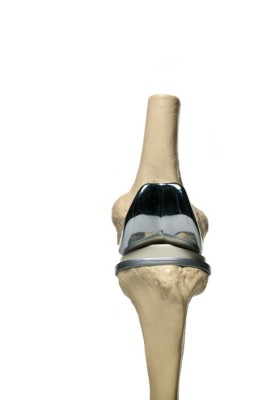 Those who suffer from painful lower-body osteoarthritis or rheumatoid arthritis (RA) may benefit from knee replacement surgery, according to Reuters Health.
Those who suffer from painful lower-body osteoarthritis or rheumatoid arthritis (RA) may benefit from knee replacement surgery, according to Reuters Health.
According to the new study, knee replacement surgery may significantly ease lower-body pain, improve leg function and increase quality of life in patients suffering from arthritis. Researchers cautioned that surgery didn’t restore patients to pre-arthritis levels of comfort and function, but patients who underwent the operation said it left them less disabled by the condition.
“The vast majority of patients had their symptoms improve dramatically from the surgery, but this procedure is not a cure – RA patients will continue to need to treat their disease outside of the joint replacement,” said senior study author Kaleb Michaud in an email to Reuters.
Knee Replacement Study
For their study, researchers asked patients with arthritis about their pain levels six months prior to knee replacement, and for six months after the procedure. 315 patients with osteoarthritis and 834 with rheumatoid arthritis participated in the study. The typical patient was in their 60s, overweight, educated at least through high school and had been dealing with arthritis for at least a decade.
After looking at pain levels before and after the surgery, researchers uncovered:
- Osteoarthritis sufferers had higher levels of pre-surgery pain than RA sufferers.
- Both osteoarthritis and RA sufferers experienced improvements in pain and quality of life after total knee replacement surgery.
- Improvements were more pronounced for patients suffering from osteoarthritis.
Francois Desmeules, a researcher at the University of Montreal, said the study showed that arthritis sufferers have another treatment option in the event that conventional approaches like improved diet, weight loss and regular exercise don’t work.
“Patients are usually satisfied with the procedure,” said Desmeules. “But they need to realize that it is good for pain relief, which is obviously important, but they might not get back to doing all the chores around the house, leisure activities and sports that they used to do.”
Dr. Silverman Comments
This study has some encouraging findings, but total knee replacement should really only be considered if conservative treatments have failed. Like the researcher said, patients with arthritis would benefit from weight loss, a healthier diet and regular exercise. Pursue those options before considering knee surgery.
If those interventions don’t work, surgery may be an option, but again, it’s worth noting that it’s not going to get you back to pre-arthritis levels. It may help reduce pain, but you’re probably not getting back out on the basketball court like you did in your 20s and 30s.
As always, there are risks involved with an operation, but those are few and far between. Your doctor will be able to discuss all your options if you decide total knee replacement is an option you wish to pursue.